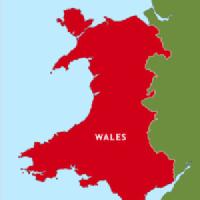IER News & blogs
Wales - Spring Statement 2018: austerity continues
 Dr Dari Luchinskaya comments on the Office for Budget and Responsibility (OBR) forecasts and the picture that they paint for the economy in the coming years, as well as on the main Spring Statement headlines and any implications for Wales. Read her blog here.
Dr Dari Luchinskaya comments on the Office for Budget and Responsibility (OBR) forecasts and the picture that they paint for the economy in the coming years, as well as on the main Spring Statement headlines and any implications for Wales. Read her blog here.
Major parties' manifestos and implications for Wales
 In a series of blog posts on what the major parties have to say about their spending plans, Wales Public Services 2025 look at pledges, and what this might mean for public services in Wales. Check out Daria Luchinskaya's blogs: What Labour and Plaid Cymru are saying about spending in WalesLink opens in a new window and What the Conservative and Liberal Democrat manifestos could mean for Wales.
In a series of blog posts on what the major parties have to say about their spending plans, Wales Public Services 2025 look at pledges, and what this might mean for public services in Wales. Check out Daria Luchinskaya's blogs: What Labour and Plaid Cymru are saying about spending in WalesLink opens in a new window and What the Conservative and Liberal Democrat manifestos could mean for Wales.
Policy for in-work progresson
 IER's Professor Anne Green and Dr Paul Sissons from Coventry University spoke at the Employability and Skills Wales Convention in Cardiff on 'Linking growth sectors and sustainable labour market outcomes: designing policy for progression'. Their presentation included data analysis from an ESRC-funded project with colleague Neil Lee (LSE) on 'Harnessing Growth Sectors for Poverty Reduction' and findings from an international literature review focusing on initiatives to foster progression in selected sectors, with a particular emphasis on promising approaches from the US.
IER's Professor Anne Green and Dr Paul Sissons from Coventry University spoke at the Employability and Skills Wales Convention in Cardiff on 'Linking growth sectors and sustainable labour market outcomes: designing policy for progression'. Their presentation included data analysis from an ESRC-funded project with colleague Neil Lee (LSE) on 'Harnessing Growth Sectors for Poverty Reduction' and findings from an international literature review focusing on initiatives to foster progression in selected sectors, with a particular emphasis on promising approaches from the US.
Sissons, P., Green, A. and Lee, N. (2016). Supporting progression in growth sectors: A review of the international evidenceLink opens in a new window. Cardiff: Public Policy Institute for Wales.
Breaking the Cycle: What Works in Reducing Intergenerational Worklessness and Fragile Employment
New report from the Institute for Employment Research at University of Warwick, commissioned by the Public Policy Institute for Wales, reviews the effectiveness of policies to tackle intergenerational worklessness and fragile employment. The research, Dr Daria Luchinskaya and Professor Anne Green, suggests that intergenerational worklessness is unlikely to be widespread in Wales. However, fragile employment – whereby individuals move repeatedly in and out of employment – is a significant problem for some households and in some communities. The report finds that a ‘Work First’ policy approach (aimed at enabling people to get into work) has had some success but many of the jobs that are secured are part-time, temporary, low skill and low paid. Read the report on the PPIW website .
.
